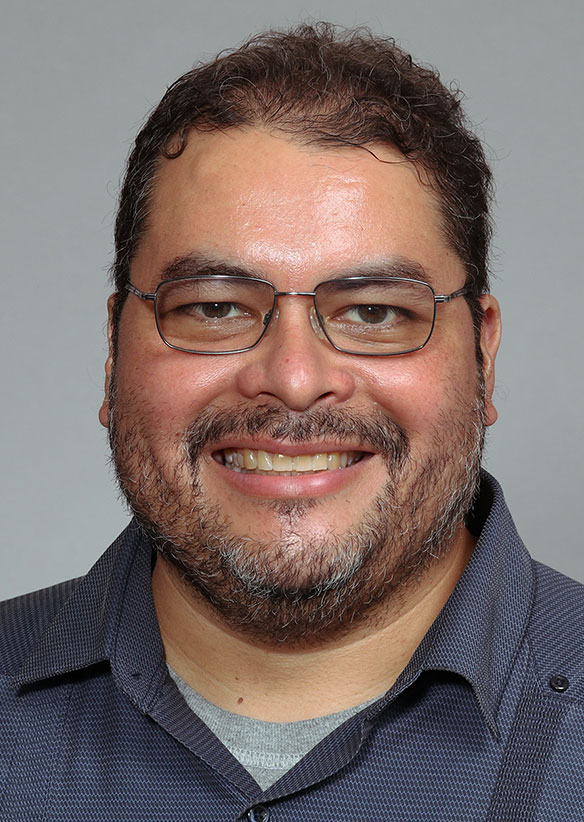“At this point in our program we’d like to sort of tip our hat to the great Louis Armstrong without whom we’d have no idea what we’d even be playing now.” This is how the late jazz pianist and educator Ellis Marsalis (1934–2020) introduced Louis Armstrong’s classic Struttin’ with Some Barbecue to a packed home crowd on the occasion of his retirement from teaching. The event took place on August 4, 2001, at Lakefront Arena in New Orleans, Louisiana, and brought together Ellis’s children Branford (sax), Wynton (trumpet), Delfeayo (trombone), and Jason (drums)—acclaimed musicians in their own right—for an unforgettable evening of jazz.
This past summer I shared with my Holy Spirit class a biblical text Lutherans often use to highlight the inability of humans after the fall to know spiritual things apart from the Holy Spirit’s work in their lives through the Word.
The natural person does not accept the things of the Spirit of God, for they are folly to him, and he is not able to understand them because they are spiritually discerned (1 Corinthians 2:14 ESV).
The text shows up repeatedly in the Book of Concord’s discussion “Concerning the free will” in Article II of the Formula of Concord (FC):
1. On this article it is our teaching, faith, and confession that human reason and understanding are blind in spiritual matters and understand nothing on the basis of their own powers, as it is written, “Those who are natural do not receive the gifts of God’s Spirit, for they are foolishness to them and they are unable to understand them” [1 Cor. 2:14*] when they are asked about spiritual matters (KW, FC, Epitome 2).
This text inhabits a broader repertoire of biblical voices, including another favorite of mine: “Let me ask you only this: Did you receive the Spirit by works of the law or by hearing with faith?” (Galatians 3:2). The beauty of this text lies in its witness to what is easily one of the most foundational teachings about the Holy Spirit, one which separates the biblical teaching from rabbinic schools of thought the apostle Paul would have been exposed to in his studies. In short, the Holy Spirit is not a reward for holiness but the source of our holiness. Or as the apostle puts it, we do not receive the Holy Spirit on the basis of our works but on the basis of faith in Christ alone when we hear the gospel and believe.
Yet another voice that sings the same Spirit song is Martin Luther’s well-known explanation to the third article of the Apostles’ Creed in his Small Catechism (SC):
I believe that by my own understanding or strength I cannot believe in Jesus Christ my Lord or come to him, but instead the Holy Spirit has called me through the gospel, enlightened me with his gifts, made me holy and kept me in the true faith . . . (KW, SC, 6)
Paraphrasing Ellis’s words about Armstrong, I told my students, “Lutherans believe that ‘without the Holy Spirit, we wouldn’t even now what we are doing here!’” Which brings me back to the Marsalis family. In his introduction to the Louis Armstrong’s classic, Ellis acknowledged in his own way the consensus of music scholars on the indisputable influence of Armstrong (affectionally known as “Pops”) in the development of the language of jazz and the American songbook.
In terms of influence in our lives, the Spirit is to the church what Louis Armstrong is to jazz, that is, the one without whom we would not understand or have the language to play, sing, live, move, and have our being. To make this point, I shared with my students a story often told by Ellis’s son Wynton, easily one of the greatest trumpeters alive today, in which he talks about his days as a student at Julliard in New York, one of the top music schools in the world. At the time, he was used to playing really fast, technical trumpet solos like those of Freddie Hubbard. One day his father Ellis sent him a cassette tape with a Pops’ solo called Jubilee for him to study. Cool Wynton thought Pops’ music sounded like some of the corniest stuff he had ever heard. In an interview with Walter Isaacson for Amanpour and Company, Wynton talks about that conversation with his father:
He [Ellis] said, “Hey man, check this Louis Armstrong [album]” . . . I said, “Let me just learn this solo.” I couldn’t, no way in the world I could play that solo . . . You know, it really forced some humility on me. I said, well, you know, I need to figure [out], learn, see what Pops was doing . . . I called my father. I said, “Man, I can’t make it through this Pops’ solo.” He started laughing. He said, “I know.”[i]
Upon hearing the story, students appreciate that the Spirit is a bit like Pops, “without whom we’d have no idea what we’d even be playing now.” Without the Spirit, we wouldn’t have the language, grammar, or vocabulary to worship the Father through the Son. Without the Spirit, we wouldn’t be able to confess, “Jesus is Lord.” We wouldn’t be able to cry out, “Abba, Father,” in prayer. Or to quote fourth-century church father St. Basil’s On the Holy Spirit, another one of our class readings: “It is impossible to worship the Son except in the Holy Spirit; it is impossible to call upon the Father except in the Spirit of adoption” (27).
You can check out the Marsalis family’s rendition of Louis Armstrong’s Struttin’ with Some Barbecue at https://wyntonmarsalis.org/videos/view/struttin-with-some-barbecue When you listen to this piece, remember Ellis’s wise homage to Pops, “. . . without whom we’d have no idea what we’d even be playing now.”
And then think of the apostle Paul’s homage to the Holy Spirit, the fount of all wisdom, without whom we would not know the things of God that point us to faith and life in Jesus Christ:
For I decided to know nothing among you except Jesus Christ and him crucified. And I was with you in weakness and in fear and much trembling, and my speech and my message were not in plausible words of wisdom, but in demonstration of the Spirit and of power, so that your faith might not rest in the wisdom of men but in the power of God . . . For who knows a person’s thoughts except the spirit of that person, which is in him? So also no one comprehends the thoughts of God except the Spirit of God . . . The natural person does not accept the things of the Spirit of God, for they are folly to him, and he is not able to understand them because they are spiritually discerned” (1 Corinthians 2:2–5, 11, 14).
Like Wynton’s appreciation for Pops, students learn humility before the mystery of the Holy Spirit’s sanctifying work in their lives. Like Ellis’s homage to Pops, they also learn to honor the Holy Spirit “who with the Father and the Son together is worshipped and glorified.”
[i] You can hear Wynton tell the story, starting around min. 9:27 in https://www.youtube.com/watch?v=lOIuzr-pvS4



Leave a Reply
You must be logged in to post a comment.